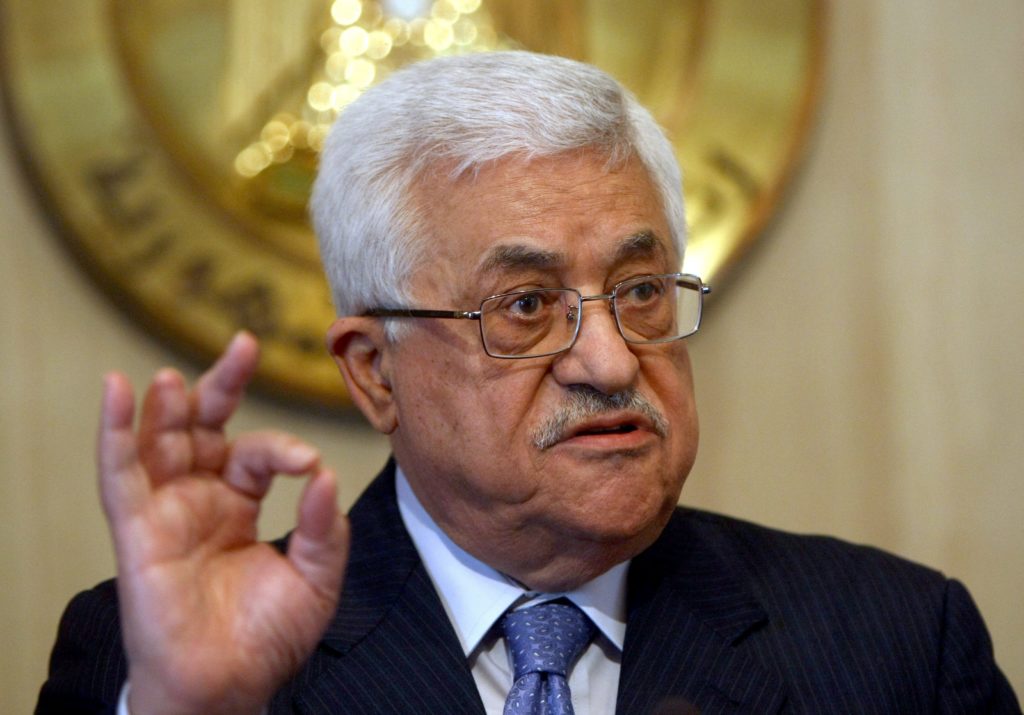IN THE MEDIA
‘Virtual’ Palestinian state could lead to actual disaster
August 22, 2011 | Colin Rubenstein

Direct negotiations with Israel are the only path to a two-state solution.
Colin Rubenstein
The Age – August 22, 2011
THE Palestinian Authority’s plan to unilaterally seek United Nations recognition of nominal statehood cannot lead to anything good for either Palestinians or Israelis.
It is unlikely to result in significant progress towards a genuine Palestinian state, and could produce several highly negative consequences.
For example, it violates the provisions of the Israeli-Palestinian Oslo Accords, the legal basis on which the Palestinian Authority is founded. Moreover, by endangering the co-operation between Israel and the Palestinian Authority on which the extraordinary recent growth in the Palestinian economy depends, it will almost certainly be economically disastrous.
Further, Palestinian officials have begun to voice fears that a merely symbolic UN declaration could prompt public frustration, weaken the Palestinian Authority and strengthen hardliners such as Hamas. The possibility of a ”third Intifada” as a result of these frustrations is also being raised.
Given all this – the purely symbolic gains, considerable costs, and great risks – why is Palestinian Authority President Mahmoud Abbas pursuing the course he is? It is not because there is no hope of achieving statehood through negotiations with Israel. All three of Israel’s major parties now call for a two-state peace agreement.
The Palestinian Authority has rejected offers of a Palestinian state by previous Israeli prime ministers Barak and Olmert – packages that included almost everything the Palestinians could reasonably expect in any genuine two-state resolution.
Current Prime Minister Netanyahu has been offering unconditional talks – explicitly on a two-state peace – since 2009. It is the Palestinian side which has consistently rejected resuming the negotiations, placing new pre-conditions on even sitting together at the negotiating table.
In compliance with a Palestinian demand, Netanyahu even instituted an unprecedented 10-month moratorium on new home-building in West Bank settlements.
In any case, arrangements in place since 2003 have precluded new settlements being built, or settlements expanding their boundaries, meaning current internal settlement growth does not consume any additional land and cannot affect the viability of a future Palestinian state.
Similarly, arguments that a token UN resolution recognising a Palestinian state will somehow force Israel to make additional concessions to the Palestinians simply make no sense. This is a measure certain to fan Israeli-Palestinian discord and enmity and likely to provoke a rise in violence – especially if reported Palestinian plans to sue Israel in international courts or institute mass marches on Israel’s border go ahead. This hardly seems conducive to convincing any Israeli government to suddenly drop previous demands related to security and recognition.
So why has Abbas climbed so disastrously far up that unilateralist tree?
It is difficult to go past the explanation offered by veteran Israeli Arab journalist Khaled Abu Toameh, who is well-acquainted with many of Abbas’s advisers. He argues that Abbas persists with this policy because he is reluctant to sign off on any final agreement with any Israeli government, even if all realistic Palestinian Authority demands were granted.
According to Abu Toameh, Abbas does not want ”to commit to end the conflict” for fear of being denounced by both Palestinians and the Arab and Islamic worlds for having ”sold out” to the historic enemy.
The Palestinian Authority is apparently therefore pursuing an illusion – that the international community will somehow grant Palestinians statehood without the need to negotiate a peace agreement with Israel, or give up deal-breakers like the claimed Palestinian ”right of return” to Israel.
This outcome, in the unlikely event it eventuated, would almost certainly guarantee that the Israeli-Palestinian conflict would continue, probably in a far more violent and dangerous form than at present, with unresolved issues such as Jerusalem, settlements and the ”right of return” provoking continuing clashes and confrontation.
Palestinian statehood as part of the end goal of an Israeli-Palestinian peace process should be supported by Australia and other nations seeking genuine Middle East peace. But so must the only viable method of reaching such statehood: direct negotiations with Israel.
The proposed UN resolution to recognise a ”virtual” Palestinian state undermines the goal of a genuine Palestinian state achieved as the result of a two-state agreement with Israel, both by encouraging conflict and by feeding Palestinian illusions of statehood without a peace deal. Any genuine supporter of Middle East peace should therefore oppose it.
Dr Colin Rubenstein is executive director of the Australia/Israel & Jewish Affairs Council.
Tags: Israel





